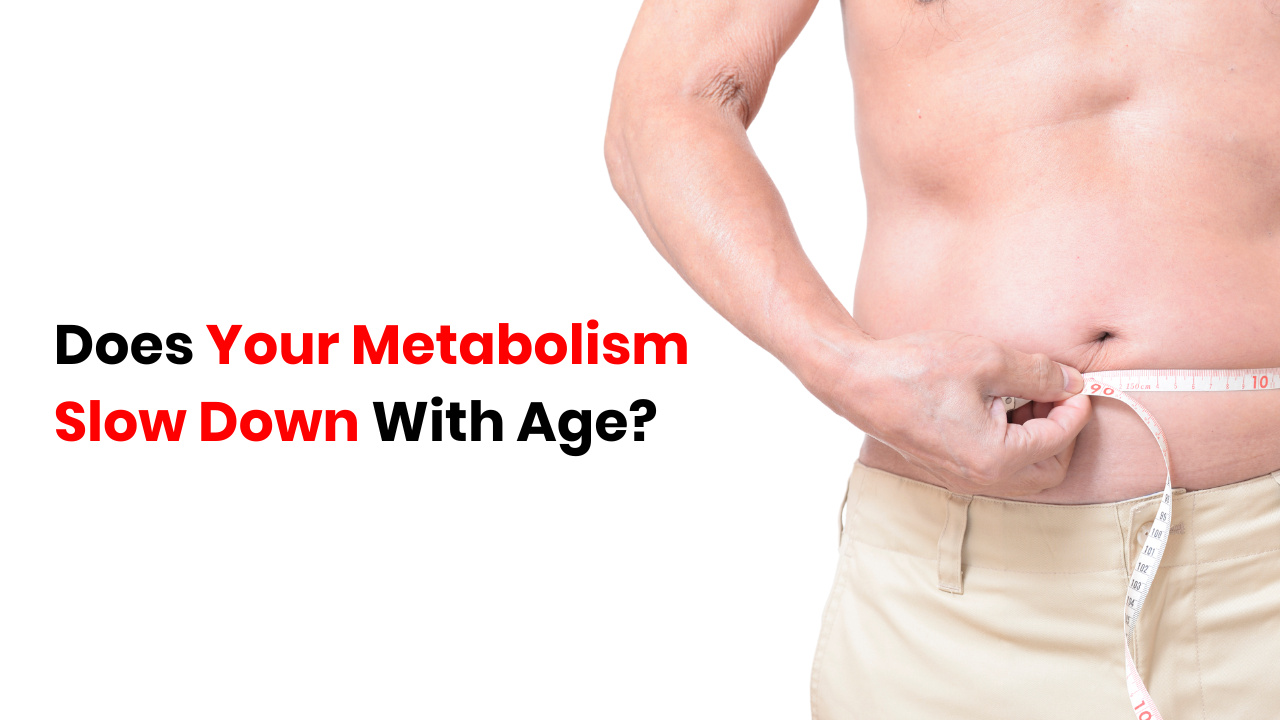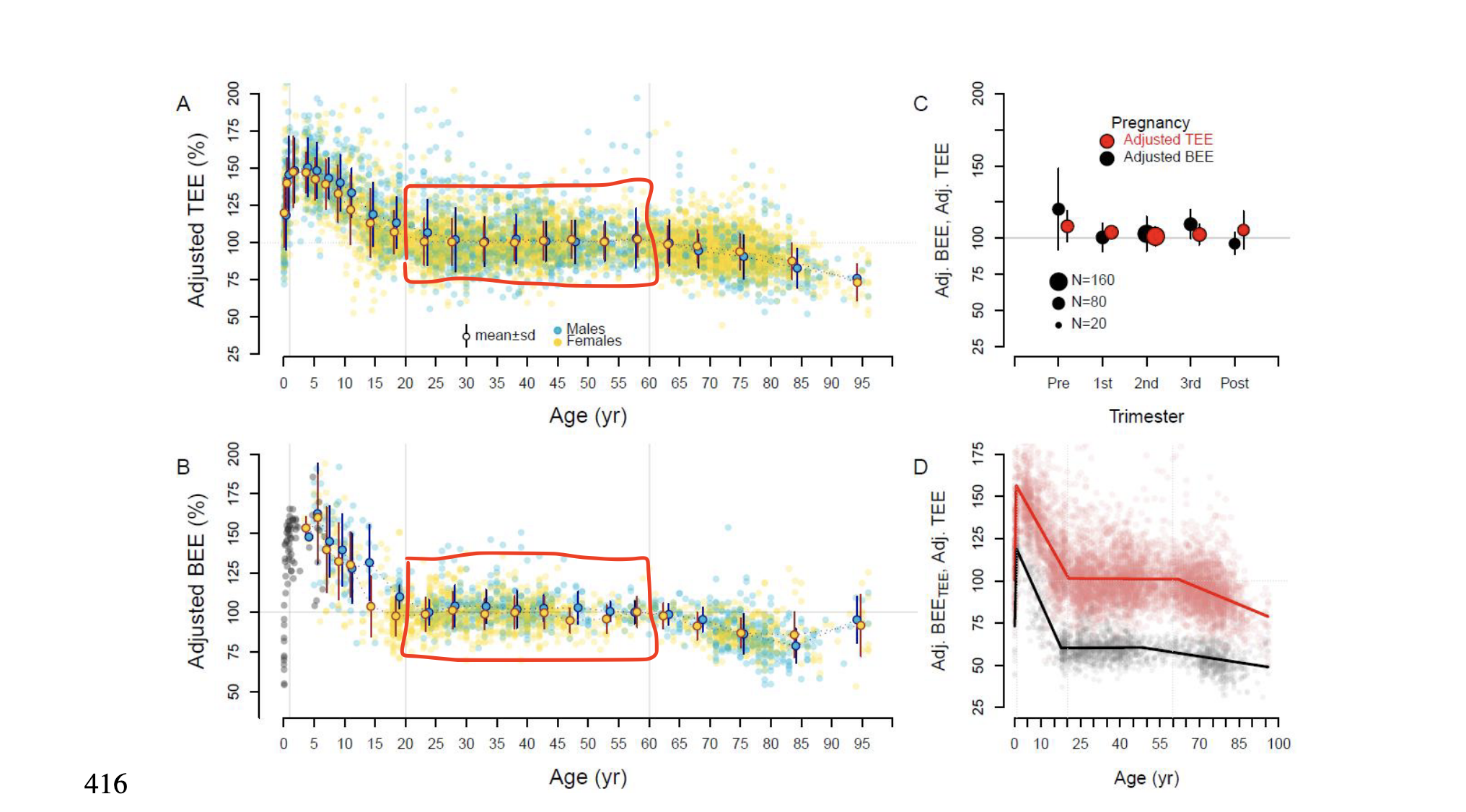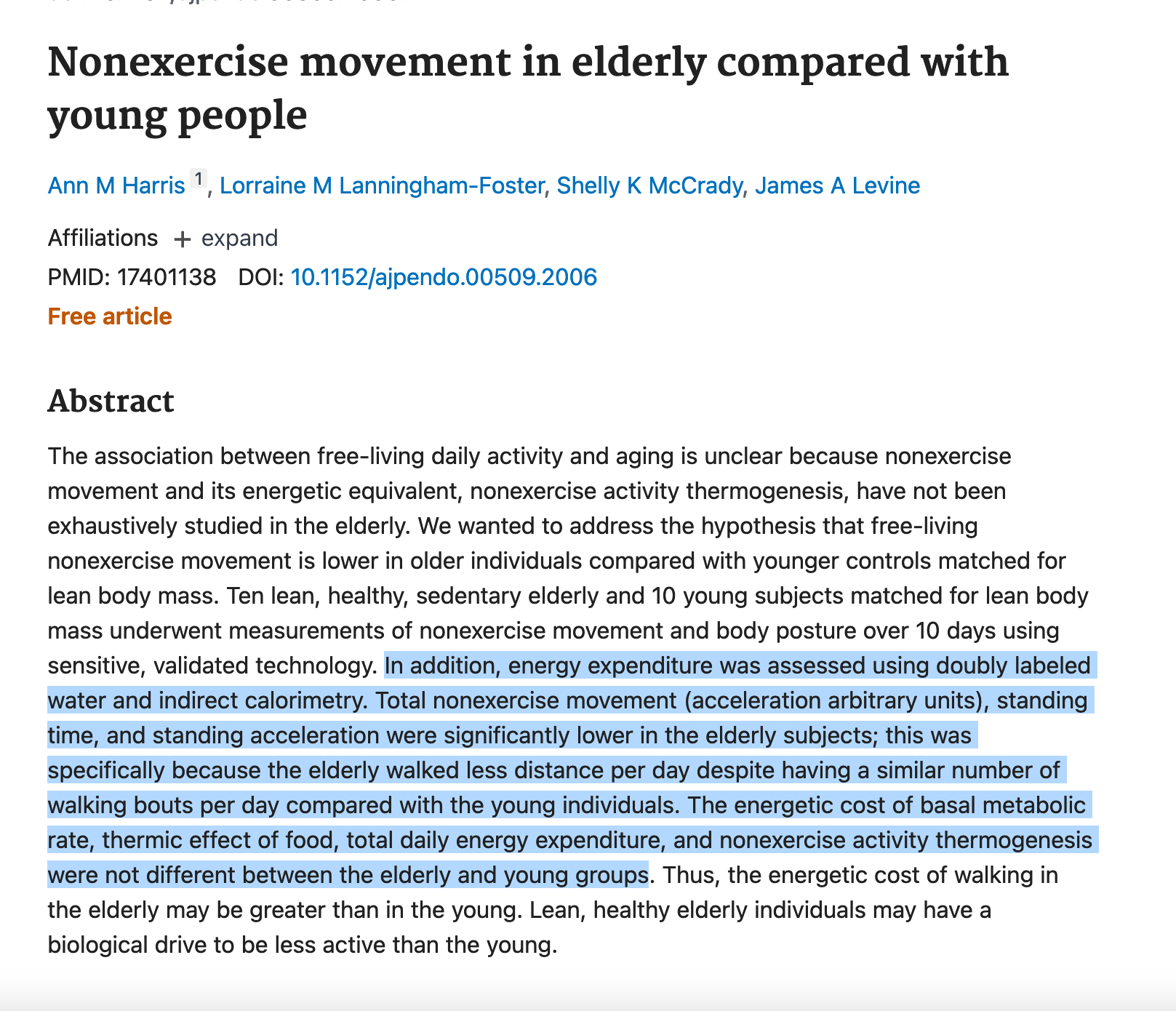Does Your Metabolism Slow Down With Age? (HOW TO LOSE FAT AT ANY AGE)
Dec 14, 2022
Let’s discuss how aging affects our metabolism and our ability to achieve fat loss and why it seems to be so challenging to lose fat as we age.
A commonly held belief is that as we age our metabolism slows down and that is why we start to gain weight and also struggle to lose fat
This belief is extra prevalent in female populations as they start to hit their 40s-- and especially once they hit menopause and onward
Let’s discuss what the data shows us and what may actually be happening.
CALORIES AND FAT LOSS
Fat loss and fat gain is simply the law of physics.
If more energy goes into our system than goes out, we expand (gain fat)
If more energy goes out of our system than goes in, we get smaller (lose fat)
It's just like the law of gravity - there is no getting around it.
CALORIES = measurement of energy
That's all it is.
This is why it doesn't matter whether you eat "good food" or "bad food" when it comes to fat loss, because a calorie is a calorie.
Calories are simply a unit of measurement.
There aren't some calories that are worth more than others just like how some seconds on the clock are not worth more than other seconds.
Contrary to popular belief it doesn't matter what type of calories you are eating in regards to fat loss or fat gain.
So whether you are eating celery or a Snickers bar, those calories make no difference.
A calorie is a calorie
METABOLISM (TOTAL DAILY ENERGY EXPENDITURE)
To determine fat loss or fat gain, you must understand your TDEE (total daily energy expenditure)
TDEE = how many calories you burn in a day
How TDEE relates to fat loss or fat gain
TDEE > calories consumed = Fat loss
TDEE < calories consumed = fat gain
TDEE = calories consumed = maintain fat
The key to making sure you lose fat is to have your total daily energy expenditure to be greater than the amount of calories you are consuming.
4 Components Of TDEE (Metabolism)
- Basal Metabolic Rate (calories you burn doing nothing)
- Largest portion of this is the amount of lean body mass (fat free mass) that you have
- Training (calories you burn working out)
- NEAT (non exercise activity thermogenesis) - calories you burn for non essential movement
- Thermic Effect of Food You Eat (different foods require different amount of energy to metabolize)
These 4 components combined are what make up your metabolism (amount of calories you burn during a day).
METABOLISM AND AGING
So how does this relate to aging and metabolism?
Meta analysis studies have shown that your metabolism is actually the same between the ages of 20-60 when you adjust for fat free mass (lean body mass) and fat mass on a per gram basis
Read Study Here
Once you hit 60 years of age, you can expect a decline of 0.7% per year in metabolism.
By the time you reach your 90s your metabolism will have reduced by up to 20-25%.

So what does this mean?
If you are between the ages of 20-60 your metabolism is the same as it has been as long as you haven't lost any muscle.
If you have lost muscle, then your absolute metabolism will have slowed down BUT it's still the same relative to the amount of lean muscle you have.
Meaning had you not lost the muscle there wouldn't have been a decline
After age 60 there will be a gradual decline in metabolism but it is still possible to stay lean.
3 REASONS IT APPEARS YOUR METABOLISM MAY HAVE SLOWED DOWN
So why does it seem that as we age our metabolism has slowed down?
There are many reasons why it seems your metabolism has slowed down as you age
REASON #1 SARCOPENIA
One of the reasons why it appears our metabolism decreases as we age (even though it remains the same from age 20-60) is because of sarcopenia.
Sarcopenia is the involuntary loss of skeletal muscle tissue as you age.
This tends to begin around age 40 and you can lose up to 50% of your muscle mass by age 80.
A large percentage of your basal metabolic rate (which accounts for 60% of your calories burned during the day) is determined by how much lean muscle tissue you have.
The more lean muscle, the faster your metabolism will be.
When looking at how fast your metabolism is, there are no changes in metabolism from ages 20-60 when adjusted for fat free mass (lean muscle) and fat mass (this is with both men and women)
However if you start to lose muscle, your overall metabolic rate will decrease due to the fact that you’ve lost lean muscle (it still remains the same relative to lean muscle and fat mass though)
This is why it’s so important to engage in some form of resistance training (especially as you age)
Weight training or resistance training is one of the best things you can do to prevent muscle loss (and even stimulate muscle growth) as you age as well as keep metabolism elevated.
Keeping lean muscle, and adding to, will help you preserve your metabolism and even increase it.
REASON #2 WE TEND TO MOVE LESS AS WE AGE
Another reason it appears that our metabolism has slowed down as we age, is because we have slowed down in general.
One of the components of your total daily energy expenditure is your daily activity and movements (including workouts).
Studies have shown that as we age we naturally tend to move less as well as stand and walk significantly less
See study here
Additional study here

This reduction in movement decreases the amount of calories expended during the day.
If this reduction in energy expenditure isn’t accounted for with a reduction in caloric intake, fat gain will begin.
If you work a desk job or live a more sedentary life it’s important to track the amount of steps and movement you do during the day and focus on increasing it.
REASON #3 "NEAT" DECREASES AS WE AGE
NEAT = Non exercise activity thermogenesis
These are the calories that we burn outside of the gym doing non training activities.
NEAT movement is both voluntary (shopping, walking around, cleaning, moving around, etc) and involuntary (fidgeting, moving hands while we speak, etc)
As we age we tend to move less in general and become more sedentary.
Meaning there is a reduction in NEAT
How much of a difference in calories burned can a reduction in NEAT create?
Sitting instead of lying down can increase energy expenditure by 4%.
Add in fidgeting while you sit and it can be as high as 54% increase in energy expenditure compared to lying down.
In fact, fidgeting can burn anywhere from 100-800 calories per day
Standing, or standing and fidgeting, versus lying down can increase energy expenditure by 13-94%
Studies have also found that obese people sit on average 2 hours more than lean people which can be a difference of 350 calories.
Additional variables that affect your NEAT (non exercise activity thermogenesis) calorie expenditure
- Workplace
- Seasonal changes
- Age
- Genetics
- Calories consumed
In all, energy expenditure from NEAT can vary up to 2,000 calories a day.
One thing you can focus on when it comes to daily energy expenditure from NEAT (non exercise activity thermogenesis) is your steps.
Tracking your steps and getting those steps up can make a huge difference in how many calories you expend during the day.
Focus on increasing steps each day or week by 1%-10%.
You can also vary the speed and incline of your steps to help get additional calories burned.
NEXT STEPS
If you enjoyed this content be sure to download my FREE Fitness Mastery guide where I discuss the 4 pillars of fitness mastery that will help you lose 12-24 pounds of fat eating whatever you want and spending less than 2-3 hours a week in the gym
Join my FREE FACEBOOK COACHING GROUP "SHAUN SURGENER FITNESS MASTERY" and learn tips, strategies, and insights into how to lose 12-24 lbs of fat and build lean muscle in 90 days eating whatever you want spending less than 2-3 hours per week training
Schedule a free 30min strategy session here to go over your specific goals and get some guidance / tips to help you achieve that next level
For coaching inquiries / opportunities check out my program offerings here
Follow me on social media
✓ Youtube (finance channel): www.youtube.com/shaunsurgener
✓ IG: https://www.instagram.com/shaunsurgener/
✓ TikTok: https://www.tiktok.com/@shaunsurgener
✓ Twitter: https://twitter.com/ShaunSurgener
✓ Facebook (personal): https://www.facebook.com/shaun.surgener
Let’s build that dream
Shaun
Join Our Mailing List
Subscribe to our newsletter to receive the latest news and updates straight to your inbox
We hate SPAM. We will never sell your information, for any reason.





